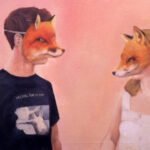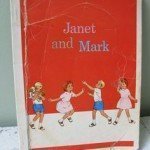Discovering 2: Sponsors of Literacy
 Discovering 2: Sponsors of Literacy
Discovering 2: Sponsors of Literacy
By Feb 14: Literacy Interviews
Our goal with this discovery is to gather literacy narratives from our family and/or friends and then use these stories to compare to the reading we are doing together. Below are some guiding questions you can use, but think of this work more as a conversation with someone about their memories and ideas related to reading and writing.
Start by asking a family member or friend if you can talk to them about their memories of reading and writing. The best interviews are with someone who is older. If you have a grandparent you can talk to or a parent, an aunt, then that is super cool. (As a class, we should try to avoid having only interviews with roommates; it would be better to have a broad data set.)
For the interview, they could either answer questions over email, you could record a Skype or Zoom conversation (this will be seen only by you, not shared with our class: you can use the video for your written memo), or take notes while you talk to them face to face (or mask to mask) or on the phone. You might want to try out a great app called Otter.ai, which captures a transcript of conversation. Try to capture as much as you can exactly what they say.
You do not need to ask all the questions below. Choose a couple questions that seem relevant for the person and then hopefully the questions will kick off a conversation about literacy. Plan for a 20-30 min interview.
 Potential Interview Questions—
Potential Interview Questions—
- Try to think of your earliest memories of writing and reading. What do you remember of reading and writing before you began school? Who helped you with it and what was that like?
- What kinds of writing did you see your parents, siblings, and other family members doing as you were growing up? What did they read, where, and when?
- What stories did your parents tell you about their own efforts to learn to read and write? What kinds of values did they place on reading and writing?
- How did reading and writing change as you entered elementary school? What did you do with it?
- What are you asked to do with reading and writing at this point in your lives?
- When you were growing up, how much school reading and school writing was done with computers? What kinds of things did you do? What values did your teachers place on computer literacy?
- In the next ten years, what will reading and writing become? What skills and understandings about online literacy will people need to have? What about emojis and gifs and screen time? Why do you think this?
Feb 16: Paper Option or Artifact due
Paper: Hopefully in this short paper, you can place the literacy interviews and Brandt’s insights together. What if our interviews were the only data we had that helped us to understand how people think about reading and writing: what might we learn about its importance or the role literacy plays in people’s lives? You could think of Deborah Brandt’s article as an example: notice how she describes the people in her study and their experiences with literacy (Raymond, Dora, etc). She is writing up her interviews in the same way you will, sharing what we learn from this data collection. You could also use any data you collected about your literacies and reflect on those ideas with Brandt in mind or compare to data collected about your own literacies to your interviewee.
Examples from previous semesters:
Ideas for artifacts:
- A collage, some kind of art, that visualizes your literacy sponsors (pop culture, people, spaces, hobbies/interests)
- Analysis: look over the literacy interview transcripts from our class and share with us what you notice: any trends across the data? Any claims that we could make about how people use literacy, what they think literacy is or what counts as literacy? Write this up and share it with us.
- A short film: interview with a grandparent, for example (with their permission) or perhaps a sponsors’ Mashup or Remix (if you’ve never seen it, check out Kirby Ferguson’s Everything is a Remix): what if you took all of your pop culture “sponsors” and created a remix: how is your identity sponsored through pop culture?
- Poem or original song
- A literacy sponsors playlist: what do your sponsors sound like?
- A pinterest board of your literacy sponsors?
- A flipgrid: ask friends or family to contribute a short video answering one of the literacy interview questions (again, that whole permission thing so you can share with our class).
- Use Adobe Spark to create a page or short video.
- Other ideas?

 Website:
Website: